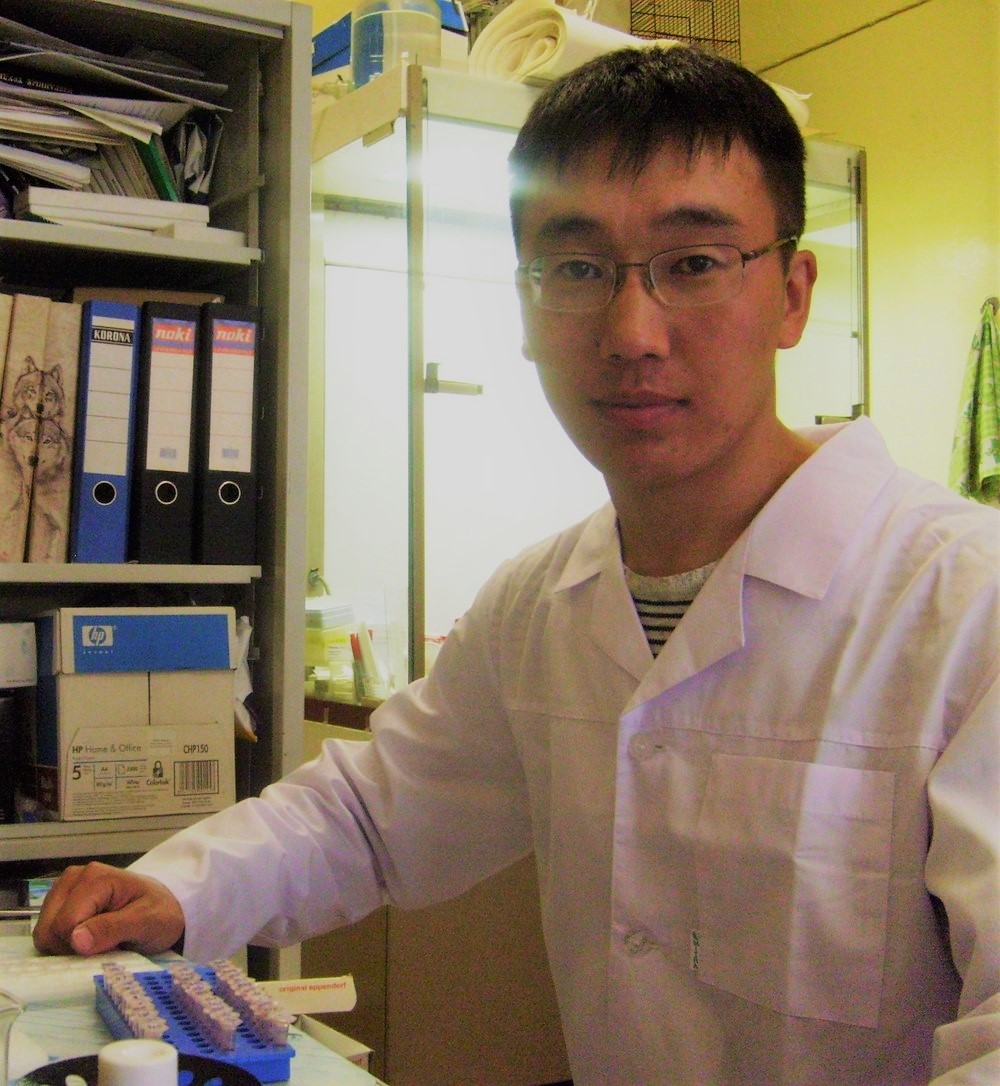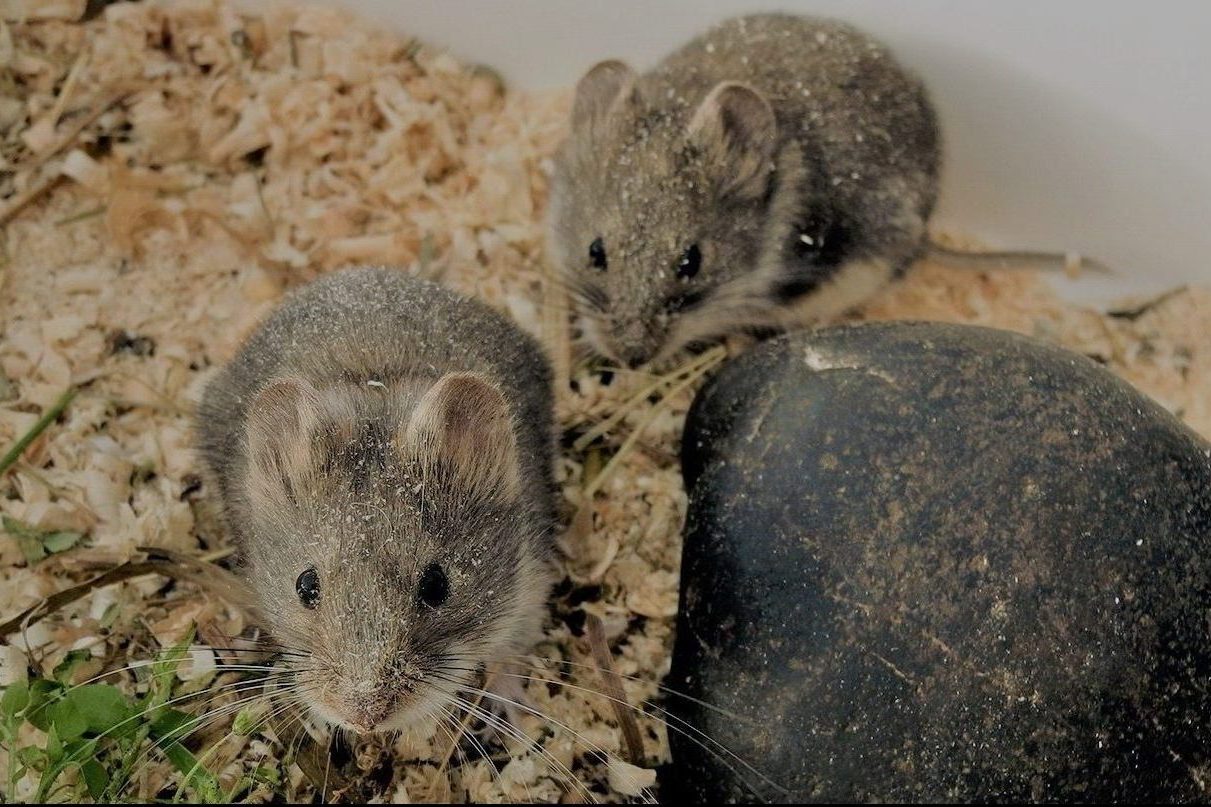The second winner of the grant competition for young scientists, the Baikal Initiative 2018, Igor Moroldoev, project manager for conservation and recruitment of the Olkhon vole population, has been in science for 15 years. We asked Igor to tell us more about the actuality of his project, the contribution made by each team member and plans for the future.
Igor, let’s start with the most important thing: what is the actuality of your project and its practical significance for Lake Baikal?
The safety of any species inhabiting fragile island ecosystems is a very urgent task. It is worth noting that landscapes of islands and adjacent continental areas of relict steppes also occupy a special place in the formation of the biota of any ecosystem. The Olkhon vole has a very small area that fits into the relict areas of the Baikal steppes. The habitats of this species are rocky outcrops and stony placers in the Tazheranskaya steppe, the islands of the Small Sea and the island of Olkhon. The relict origin, a small torn area and a declining number make it possible to classify that Olkhon vole is one of the rare and endangered species. And the loss of any biological species means danger to human civilization due to the imbalance of the biological system.
Is this your first experience as a project manager?
No, not the first. I was a project manager at Russian Foundation for Basic Research, as well as mini-projects at Takho-Baikal Institute.
And how long have you been engaged in scientific activities?
In 2004 I graduated from the university, entered the graduate school, in 2009 I defended my thesis. Therefore, I can say that I work in science about 15 years.

Are you working on any other projects simultaneously with this one?
Yes, I work at a scientific institute, and all our work is based on the implementation of small and large research and environmental projects. Currently, for example, we are working on a three-year project to study the most important adaptations characteristic of small mammalian populations in changing environmental conditions in North Asia. We give a spatial characteristic of evolutionarily established ecological niches in common living animal species, analyze long-term population dynamics of their headcount, which is one of the adaptation mechanisms that determine the existence of different animal species, and we also study the morphological and molecular genetic variability in different population and taxonomic groups of animals, as a result of adaptations to changes in natural climatic, space-time factors.
Tell us about your team. What is the contribution of each of your colleagues?
Svetlana Babina, deputy director for science at Zapovednoye Pribaikalye, is a specialist in the protection of rare species of animals in the protected areas. She is studying the ecology of small mammals in the Pribaikalye and will take part in our project. Alexandra Shumkina, a graduate student of the Irkutsk State University, a researcher at Zapovednoye Pribaikalye, is also in our team. Alexandra is studying the bats of the Baikal region. As well as Pavel Zadubrovsky, a research associate at the Institute of Systematics and Ecology of Animals, Siberian Branch of the RAS, Candidate of Biological Sciences, he is studying the behavioral ecology of mouse-like rodents, the comparative aspects of the behavior of small mammals with different social organizations. In addition, our team also has senior colleagues from the Institute of Systematics and Ecology of Animals of RAS: Dr.Sc. Yu. Litvinov, Ph.D. S. Abramov, N. Lopatina.



We have been working together for a long time, including the study of rock voles and the protection of the fragile island ecosystems of Baikal. Svetlana Babina and Alexandra Shumkina provide us with informational, transport and infrastructure support from the Federal State Budgetary Institution «Zapovednoye Pribaikalye». Pavel and our senior colleagues are responsible for the entire organizational and scientific part, the collection of material, its processing in laboratories, the maintenance of animals in the vivarium. And for all the environmental education work with tourists, locals and guides, we are responsible for the whole team.
What, in your opinion, should be done to save Lake Baikal for future generations?
Currently, I think, the main problem is the drying of small streams and rivers that feed the lake. They dry up mostly because of large-scale deforestation of forests in their origins, as well as because of forest fires. Drying of the rivers is a direct consequence of human activities, «black lumberjacks» and poachers.
In addition, we need a competent, reasonable, scientifically based approach to the regulation of tourist flow, control over tourist bases, their compliance with environmental regulations, tight control of loggers and poachers.
Protection of all links of the Baikal ecosystem, from soil and water to a unique biota, is required. Our project to restore the population of the Olkhon vole is only a small part of all the activities that need to be organized in order to preserve the lake for future generations.


